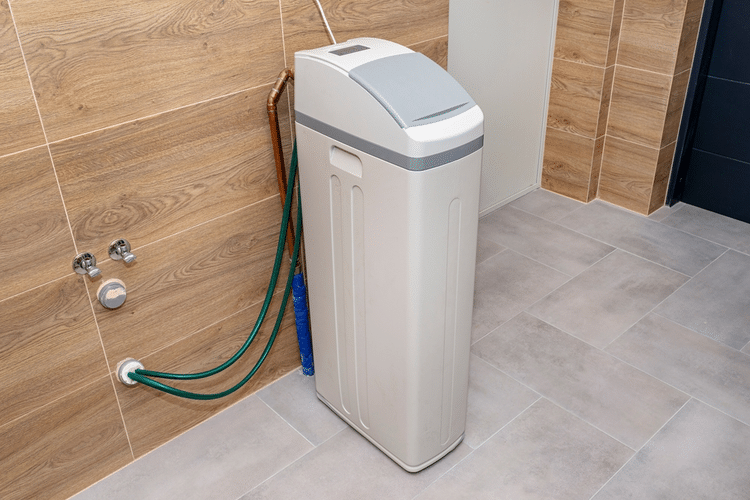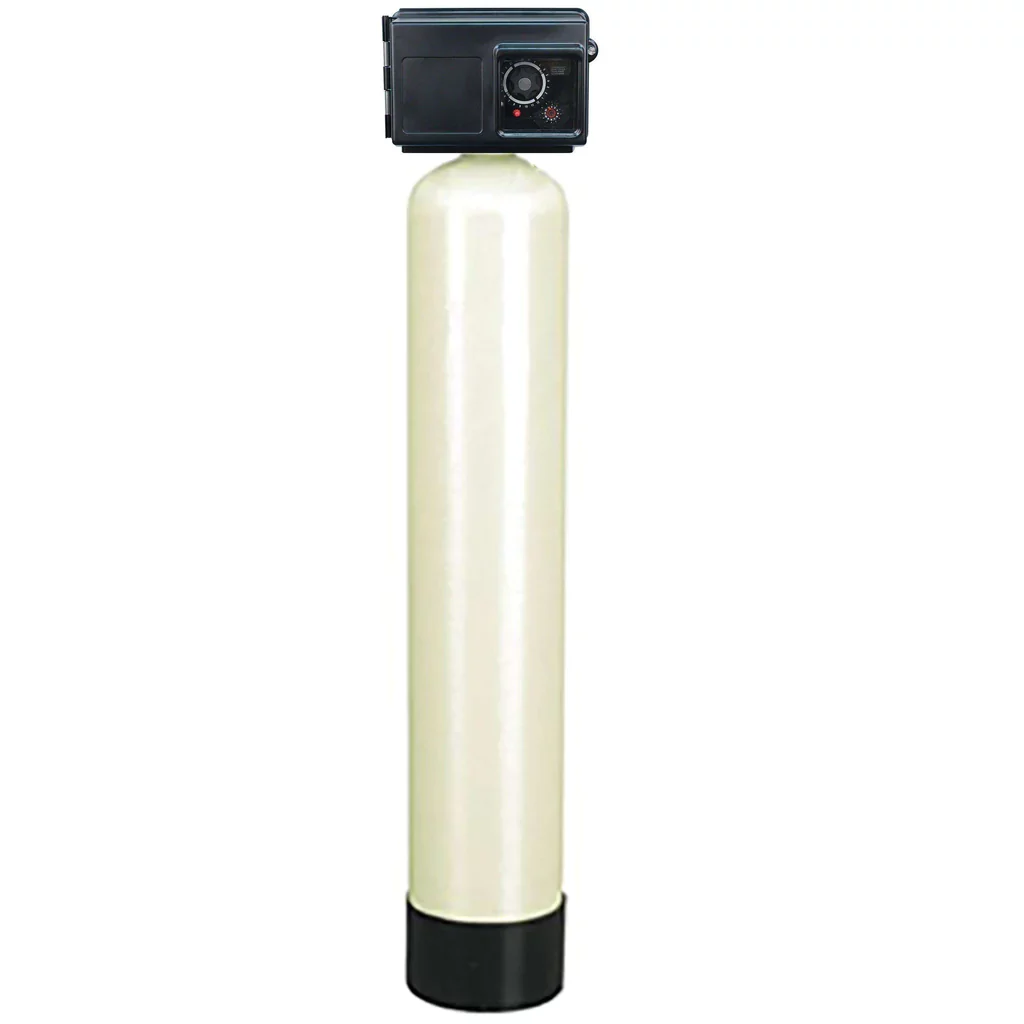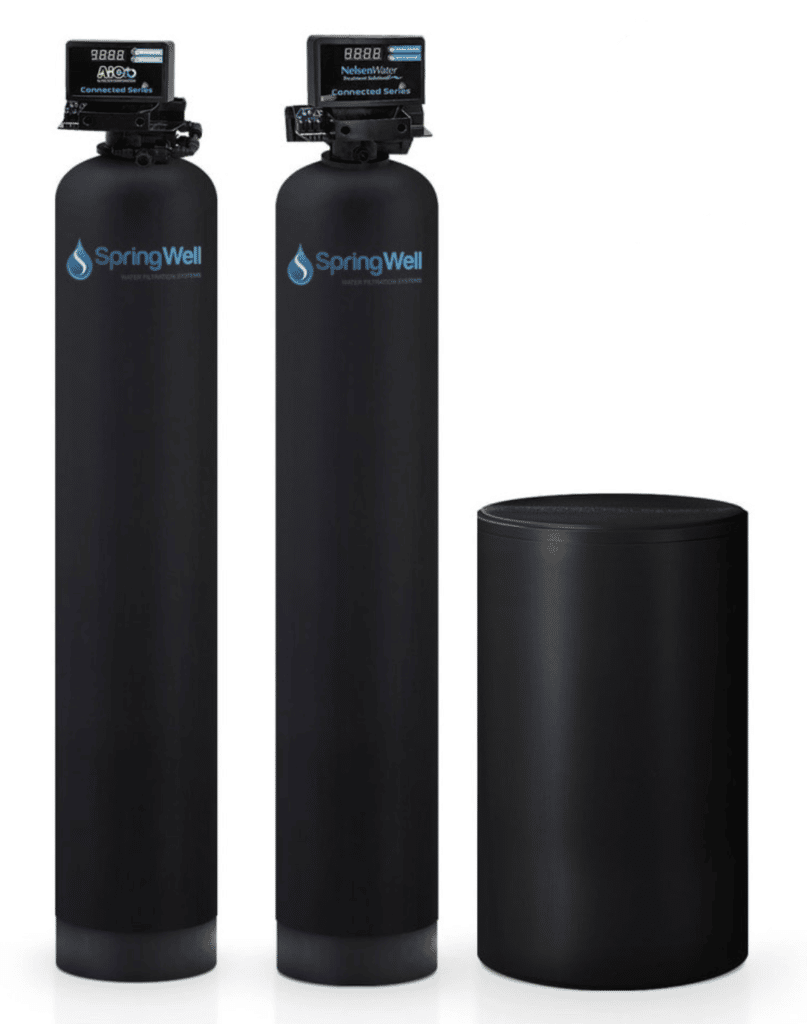High concentration of iron in water is a common problem in the United States, especially for private well owners. Although most people install a water softener to remove calcium and magnesium hard water minerals, they sometimes also expect it to remove iron in water even though it wasn’t designed for this purpose.
So, do water softeners remove iron? A standard water softener can only remove low concentration of ferric iron that’s insoluble and has a reddish color, but can’t eliminate totally dissolved ferrous iron in water.
The best solution is to purchase an iron water filter system to complement your water softener.
The Source of Iron in Drinking Water
There are many ways that iron can end up in your water supply. Your private well may be situated on top of a mineral-rich area, the iron may get picked up from the surroundings by surface water and then leach into the aquifer that feeds your well, or the iron piping of your house might be corroded.
There are two forms of iron that can contaminate water; ferric iron (oxidized iron) and ferrous iron. Ferric iron is insoluble and has large particles that can easily be removed by a water softeners as long as its concentration doesn’t exceed 2 – 5 mg/L. Ferrous iron, on the other hand, is soluble and invisible, and water softeners cannot remove it.
That said, iron doesn’t pose an health threat, and the EPA regulations concerning its presence in drinking water pertain only to aesthetic aspects like color, taste, and smell under the National Secondary Drinking Water Regulations. However, a ferric iron concentration, even as low as 0.3 mg/L, can give the water a brownish color and a metallic taste, so it’s recommended to remove it.
Iron Filter vs Water Softener
The main difference between an iron filter and a water softener is the technology behind how they work. Water softeners use ion exchange method to remove hard water minerals while iron filter uses air injection and oxidation method to remove iron in water.
Water softeners remove the positively charged mineral molecules by attracting them to a media bed filled with negatively charged resin beads. The resin beads need to remain negatively charged to keep this operation going, and this is ensured by the water softener salt the brine tank. After the resin bed is saturated with the hard water minerals, the water softener will regenerate and flush out the mineral concentration in the resin bead.

An iron filter works quite like a water softener, but its media uses an oxidizing agent like magnesium dioxide instead of resin beads. Magnesium dioxide oxidizes ferrous iron molecules to turn them into ferric iron while also making them larger. These larger molecules are then captured and flushed from the water by the filter. Through this method, a standard iron filter can remove 10 – 15 mg/L of iron, which is more than the average iron concentration in wells across the USA.
Like water softeners, iron filters regenerate when the iron concentration in the media bed reaches saturation.

Do You Need Both to Deal With Iron?
It’s possible to use both an iron water filter and water softener, but the big question is; do you really need both?
If you’re dealing with hard water and high levels of iron contamination, then you should install both an iron water filter and water softener since they address different problems.
You should first send a sample of your water to an EPA-certified laboratory for testing. If the test results show a high concentration of ferrous iron or a concentration of ferric iron that’s more than 2 mg/L, then you absolutely need an iron filter regardless of whether you already have a water softener.
Water Softener with Iron Removal Capability
If you’re looking for a water softener and iron filter system, look no further than the Springwell WSSS1 water treatment system, which offers water softener and iron removal capability.

We’ve tested lots of softeners, and our tests showed that the SpringWell WSSS1 iron filter water softener combination is the best on the market. It removes 7 mg/L of iron, 1 mg/L of manganese, and 8 mg/L of hydrogen sulfide, as well as calcium and magnesium hard water minerals. This system offers 32,000-grain capacity and 11 – 20 GPM (gallons per minute) flow rate to serve 1 – 6 bathrooms.
Conclusion
Well water in some areas in the US can have a considerably high iron concentration. Although this concentration is never above 10 mg/L and doesn’t pose a health risk, it can cause corrosion problems and change the water’s color, taste, and smell.
Water softeners can remove iron, but only ferric iron, and only when its concentration doesn’t surpass 2 – 5 mg/L. If your water supply has a higher concentration, it’s best to complement the water softener system with an iron filter.
To this end, we recommend the SpringWell combination of salt-based softener and well water filter to remove iron and hard water minerals.
How water softeners perform against other contaminants:
- Do Water Softeners Remove Lead from Drinking Water?
- Do Water Softeners Remove Chlorine? No, Here’s Why